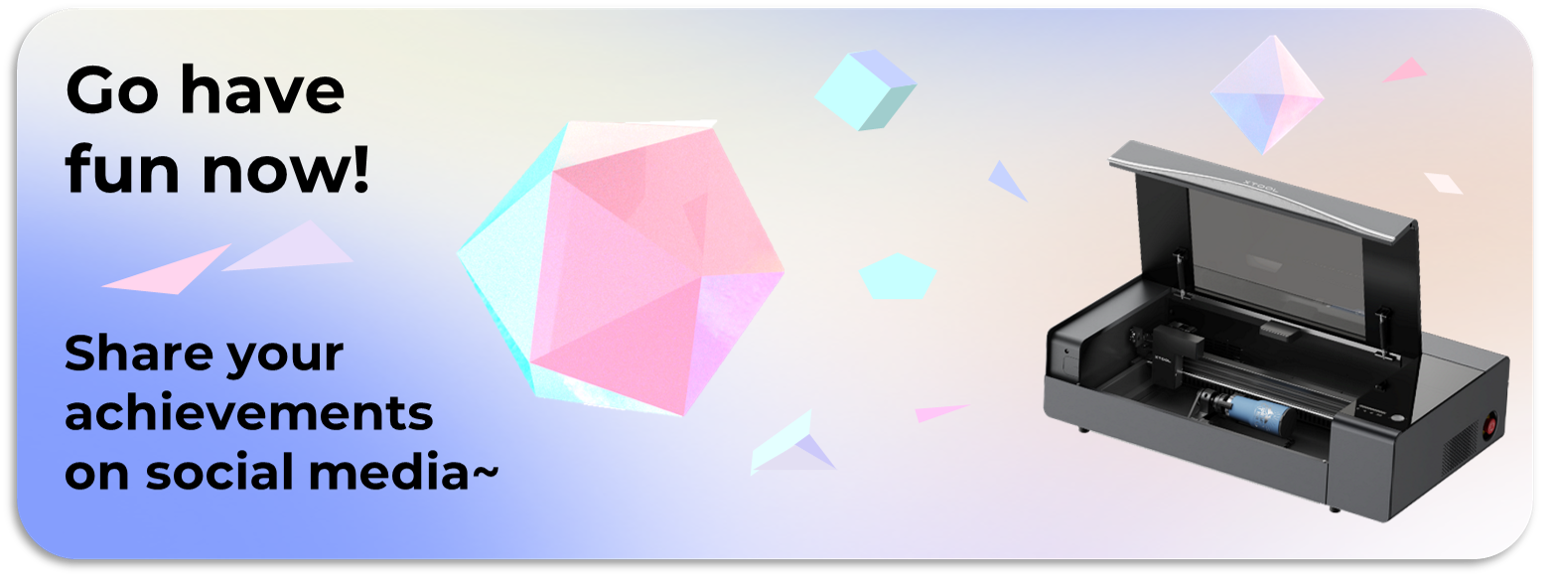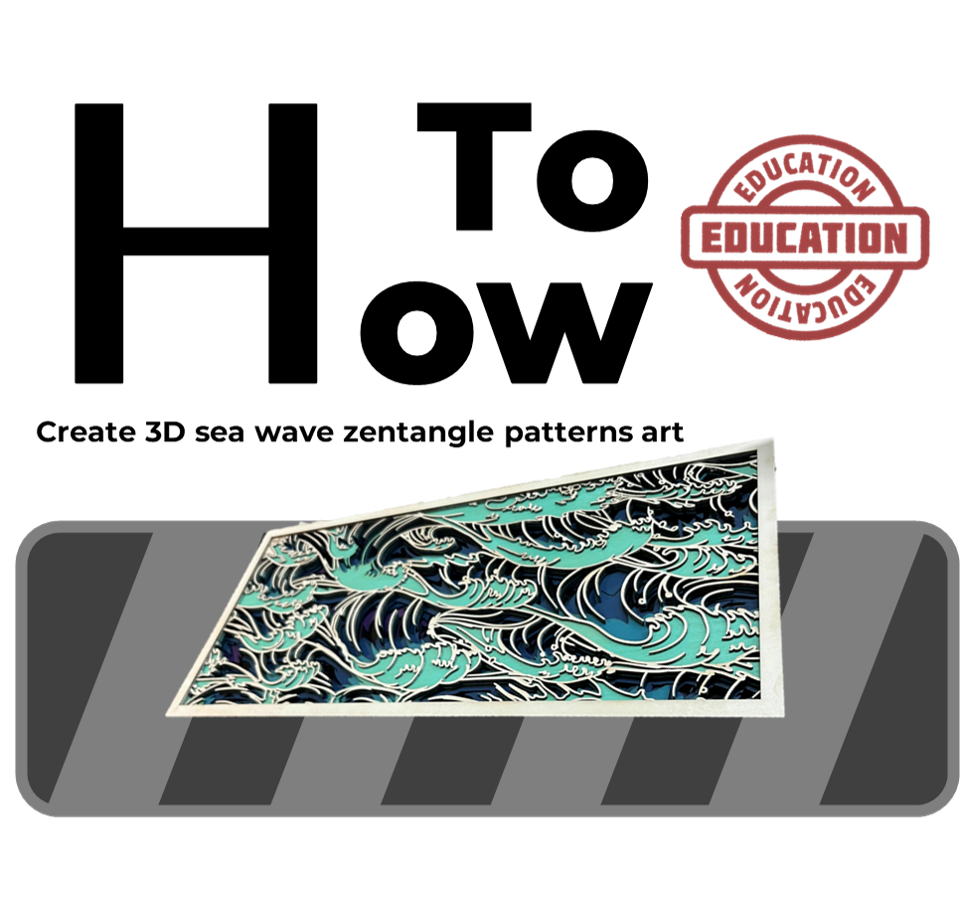# How to Make a Polyhedral Dice?
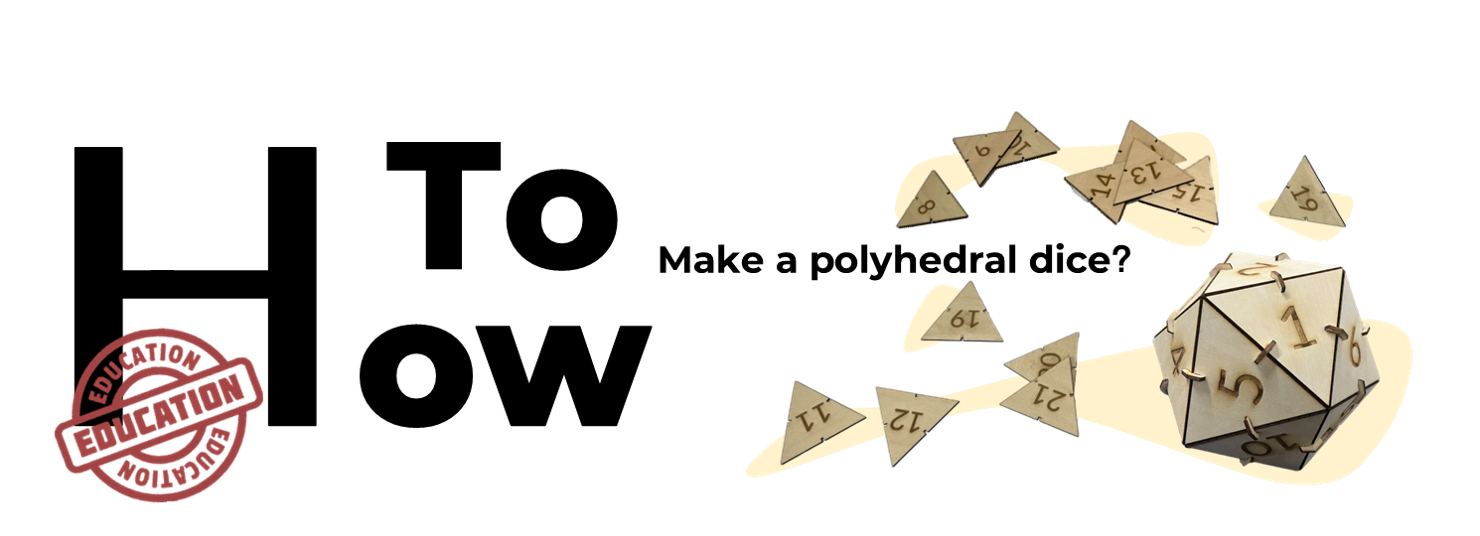
Polyhedral dice are ubiquitous and fit perfectly into every aspect of our lives. Its unique structure makes it not only widely used in the field of entertainment but also has far-reaching educational significance in the fields of math, physics, and other educational areas.
From the realm of games to the art classroom and even children's puzzles, the geometric shapes of polyhedral dice are a bridge between the realms of math and art. In addition to their traditional use in games, these polyhedral dice serve a dual purpose as both an entertainment tool and a fun visual aid for exploring math concepts. Polyhedral dice roll seamlessly between the worlds of gaming and education, creating fun and wonder all the time.
In this how-to, we'll show you the process of creating polyhedral dice using a laser cutter engraver. Join us as we explore the enchanting realm of crafting this unique tools.
What is Polyhedral Dice?
Polyhedral dice is three-dimensional dice with multiple faces. The most common type of polyhedral dice is the 20-sided die, but there are also other types such as the 4, 6, 8, 10, 12, and 100-sided dice. These polyhedral dice are commonly used in various role-playing games and strategy games, where the random numbers generated by the polyhedral dice can be used to determine a player's action or outcome in the game.
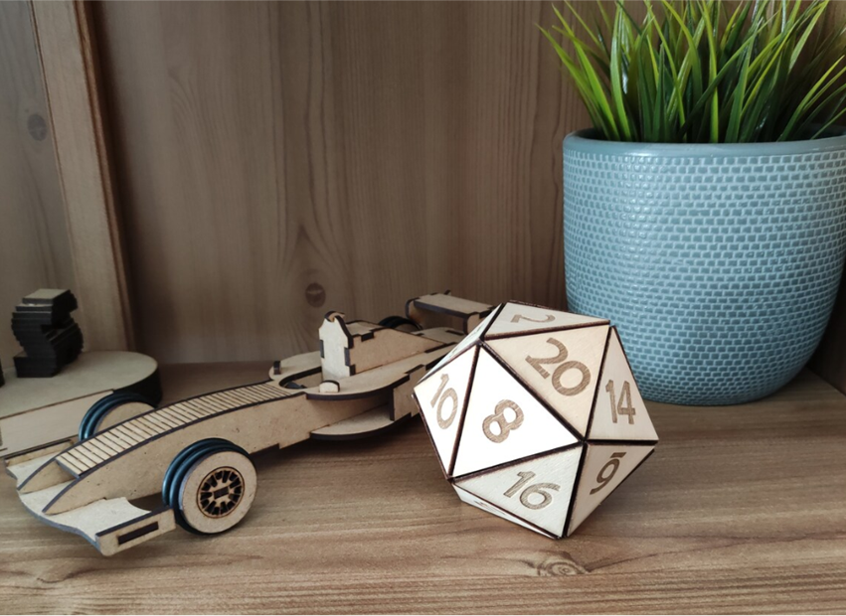
The faces of polyhedral dice are flat polygons, and the design of polyhedral dice is such that the numbers on each face are evenly distributed, ensuring fairness and randomness. Not only do these polyhedral dice play a key role in gaming, but they also serve as an interesting tool for crafts and education, through which knowledge about math, geometry, and probability can be learned.
Materials and Tools Needed for Polyhedral Dice Making
Wood Block to Craft Polyhedral Dice
There are a variety of materials that can be used to make polyhedral dice.
Plastic is lightweight and sturdy, wood is natural and eco-friendly, metal has texture, ceramics have complex patterns, cardboard is suitable for DIY, rubber is flexible, and transparent acrylic is modern.

You can decide the material for making polyhedral dice according to your usage and personal preference. Next, we will teach you how to make a polyhedral dice using a 600 x 300 x 5mm basswood board as the material and an xTool P2 laser cutter as the tool.
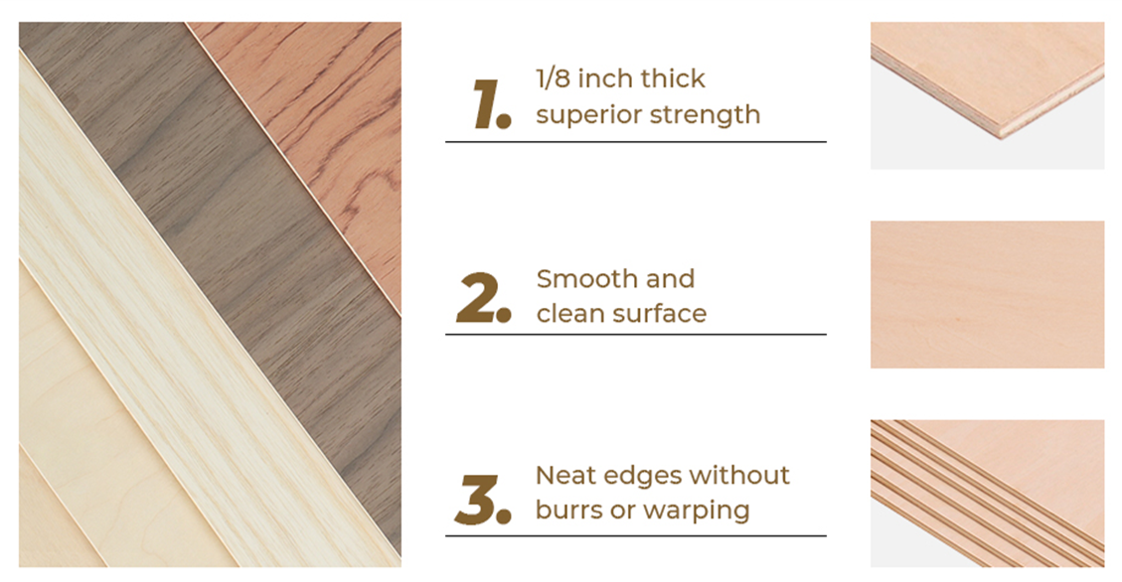
Opting for basswood boards to create polyhedral dice presents several benefits, such as their lightweight, robustness, and user-friendly nature. These attributes not only make the dice portable but also ensure that the intricate design details are precisely and beautifully executed, making Basswood an optimal choice for crafting these items.
Laser Engraver to Craft Polyhedral Dice
We use xTool P2 laser cutter to create a polyhedral dice, which ensures a highly accurate and efficient production process.
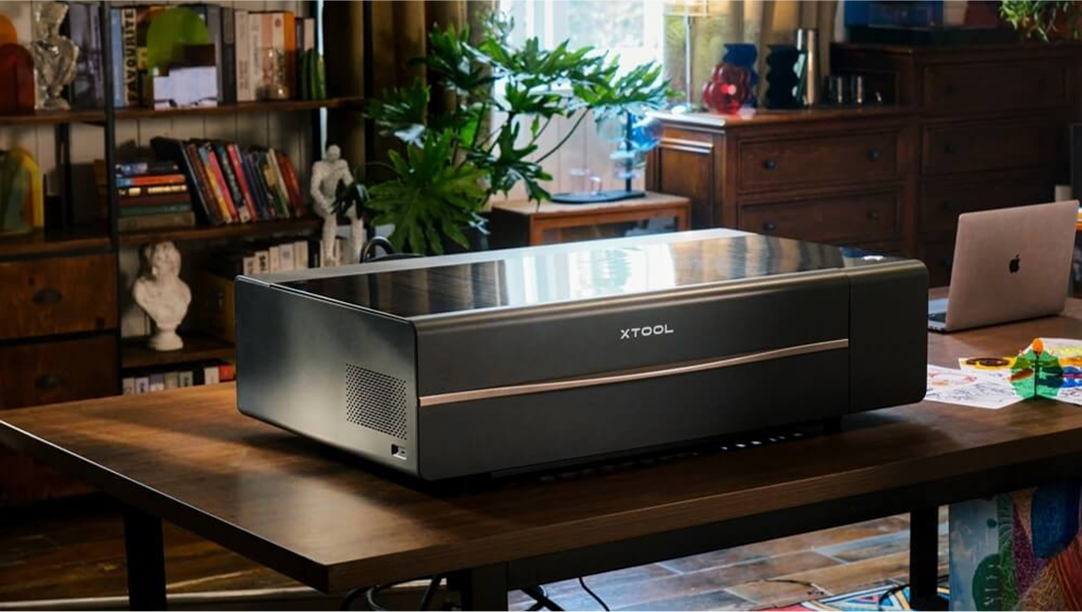
In the classroom, xTool P2 laser cutter is an excellent tool for creatively engaging with materials like wooden blocks, planks, and sculptures. By mastering the techniques of joining, constructing, and sculpting, students can craft their own polyhedral dice. This laser cutter stands out in educational settings due to its safety features, robust capabilities, adaptability, and user-friendliness.
Beyond school applications, xTool P2 is also a fantastic choice for home-based projects. With its ability to handle a range of materials, including wood and acrylic, it allows individuals to tap into their creative potential.
Whether you're an educator or a DIY enthusiast looking to explore new creative avenues at home, xTool P2 helps refine practical skills and ensures that every project is both educational and enjoyable.
How to Make a Polyhedral Dice with a Laser Cutter
Polyhedral dice have become a popular item in creative workshops for their unique geometric design and abundance of uses. Whether you're a game enthusiast, a craft artist, or a math enthusiast, making your own polyhedral dice is a fun and creative adventure.
Step 1 : Download the XCS software
• XCS is a laser engraving and cutting software developed by xTool and designed specifically for use with xTool lasers.
• It is highly adaptable to the xTool laser and allows you to control the machine with ease.
• Connecting the machine to the XCS makes it easy to go from designing the material to processing it, turning your imagination and creativity into something you can touch.

Step 2 : Use P2 to Machine the Board into a Polyhedral Dice Part
Substep 2.1 : Connect Device
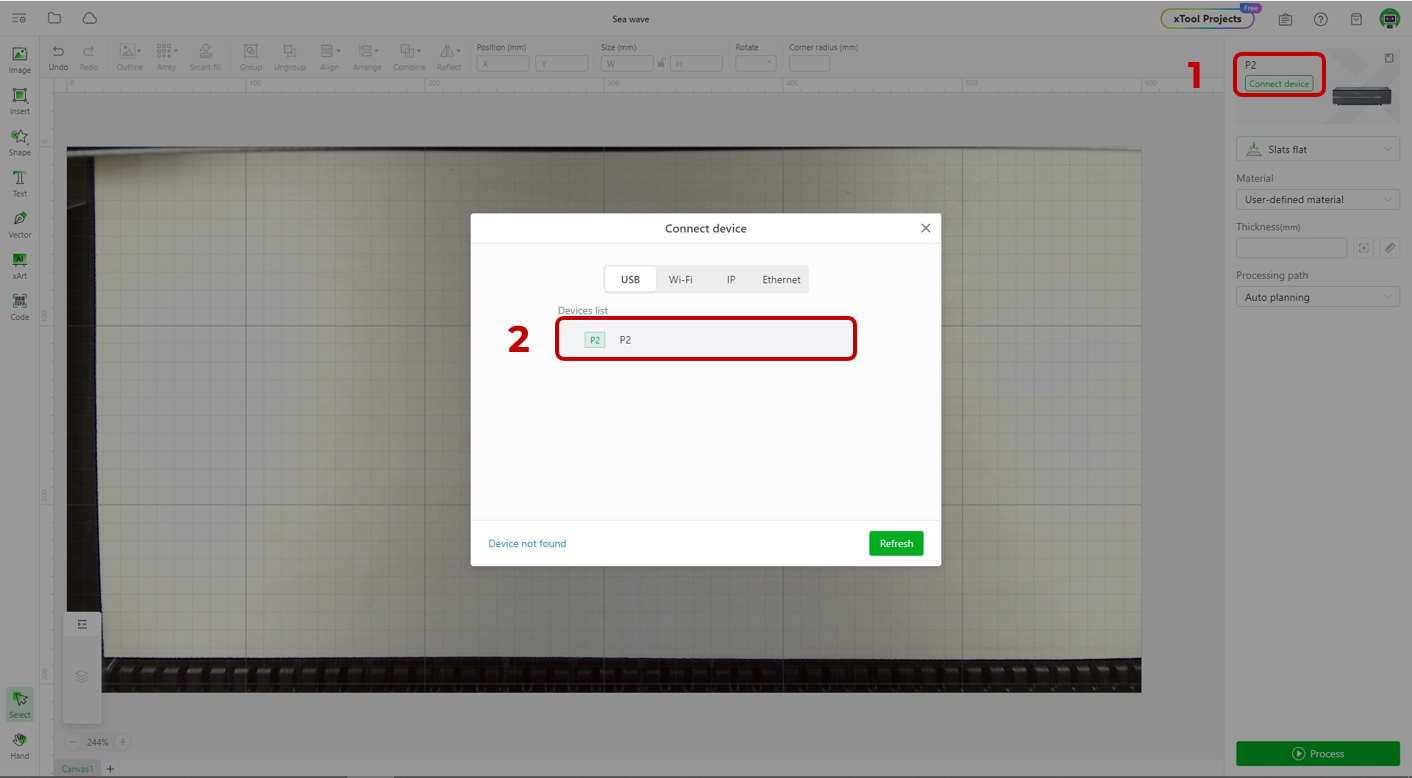
• Click the “Connect device”
• We have four methods to choose from when connecting devices.— USB, Wi-Fi, IP and Ethernet. Here, we are using the USB connection method.
Detail 1 : Internal visualization
The machine comes with dual 16MP cameras built-in, allowing for real-time preview and visual precision with an accuracy as fine as 0.3mm.
• Panoramic Camera: Generates a panoramic photo in 3 seconds, providing a quick view of the workspace at any time.
• Close-up Camera: Can move with the laser head to capture more precise images from any position.
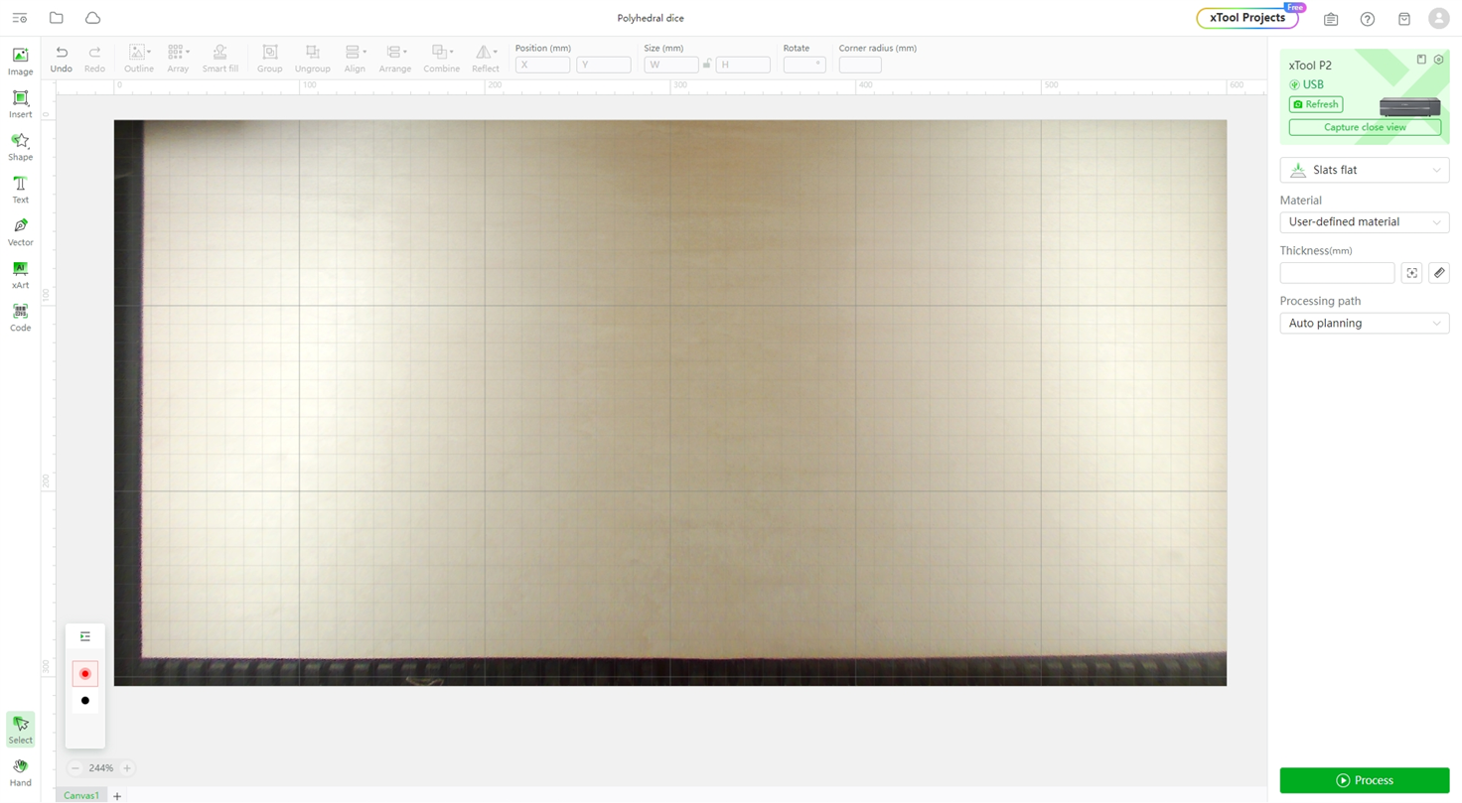
• With the machine's built-in camera, we were able to see the live feed from the XCS software.
• It can help us to make a more precise and rational layout of the pattern to be processed, and avoid exceeding the processed parts when the laser is working.
Substep 2.2 : Processing Pattern Parameters
• P2 can perform Slats flat, Laser cylindrical, Open plane Conveyor feeder and Curve process. For this processing, choose the Slats flat machining method.
• Since we are using a 300*600*3mm poplar wood board, here we choose 3mm basswood board
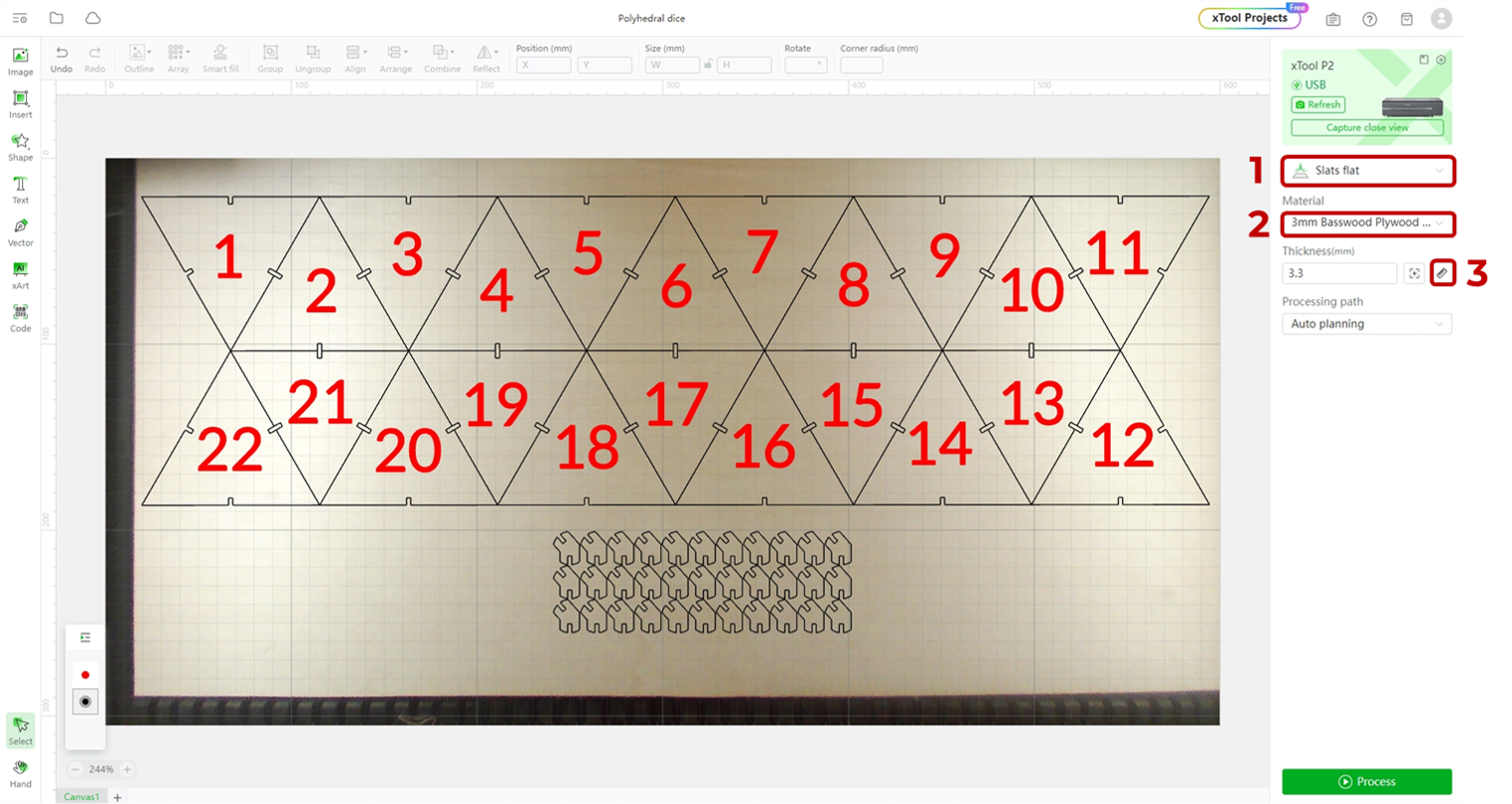
• Before processing, don't forget to measure the height of the workpiece to avoid inappropriate height that might cause the laser to collide with the workpiece. Here, we choose automatic measurement.
Detail 2 : Creating layers

The following are the parameters for cutting and engraving :
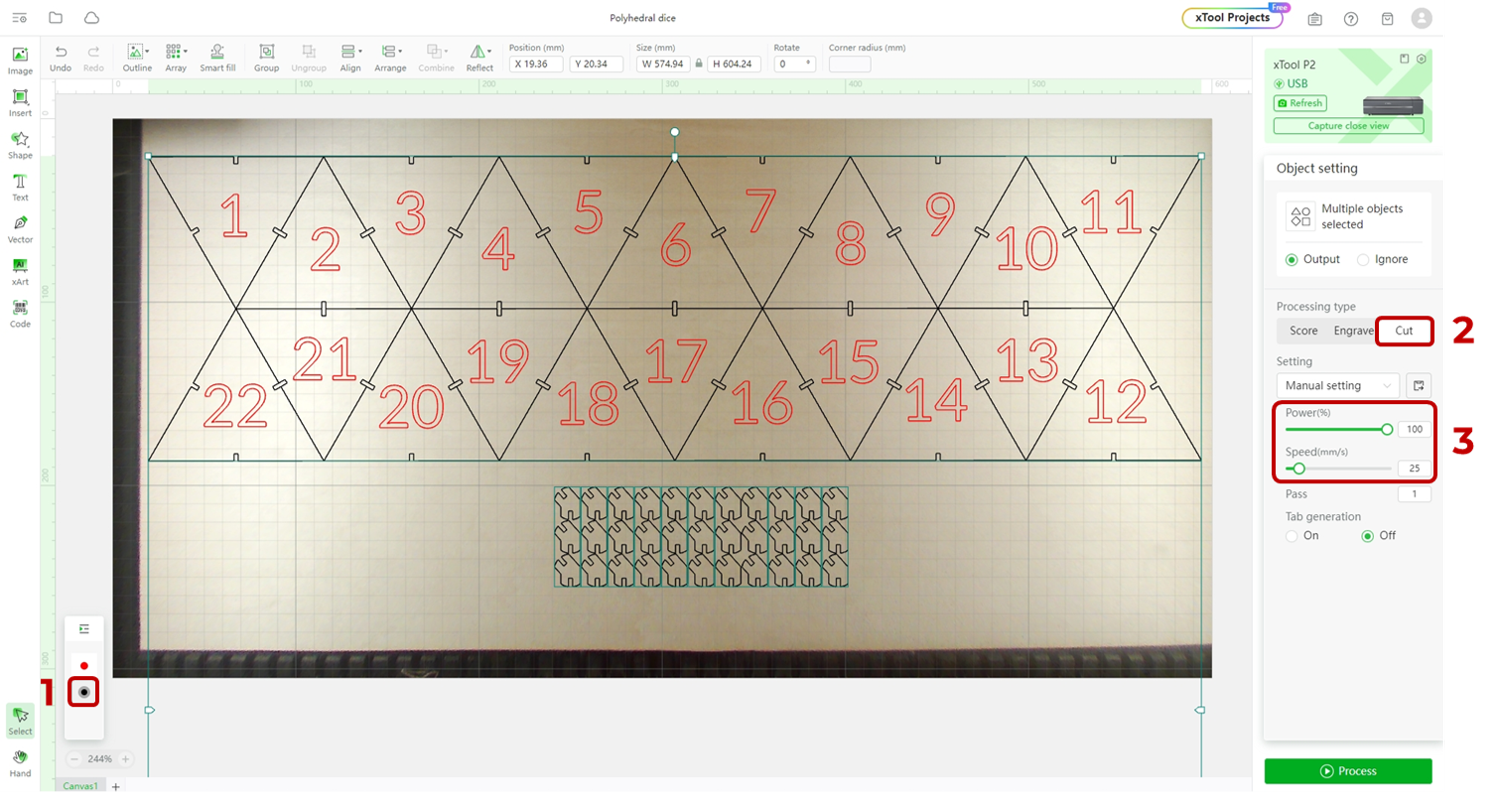
• Select the first layer (black layer)
• Processing type selection cut
• The processing power is set to 100% and the speed is 5
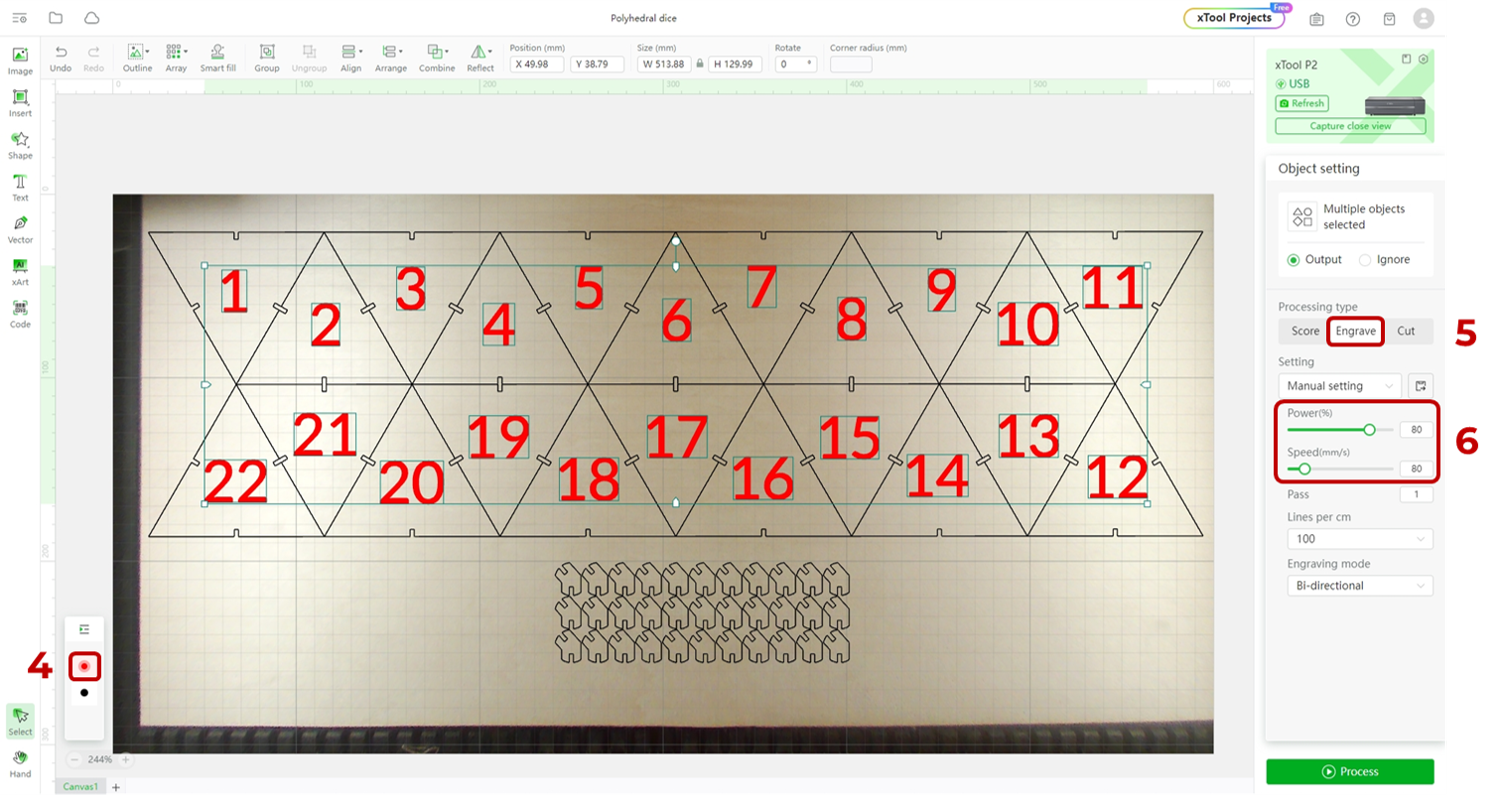
• Select the second layer (red layer)
• Processing type selection Engrave
• The processing power is set to 80% and the speed is 80
After adjusting the parameters, click Process to start processing.

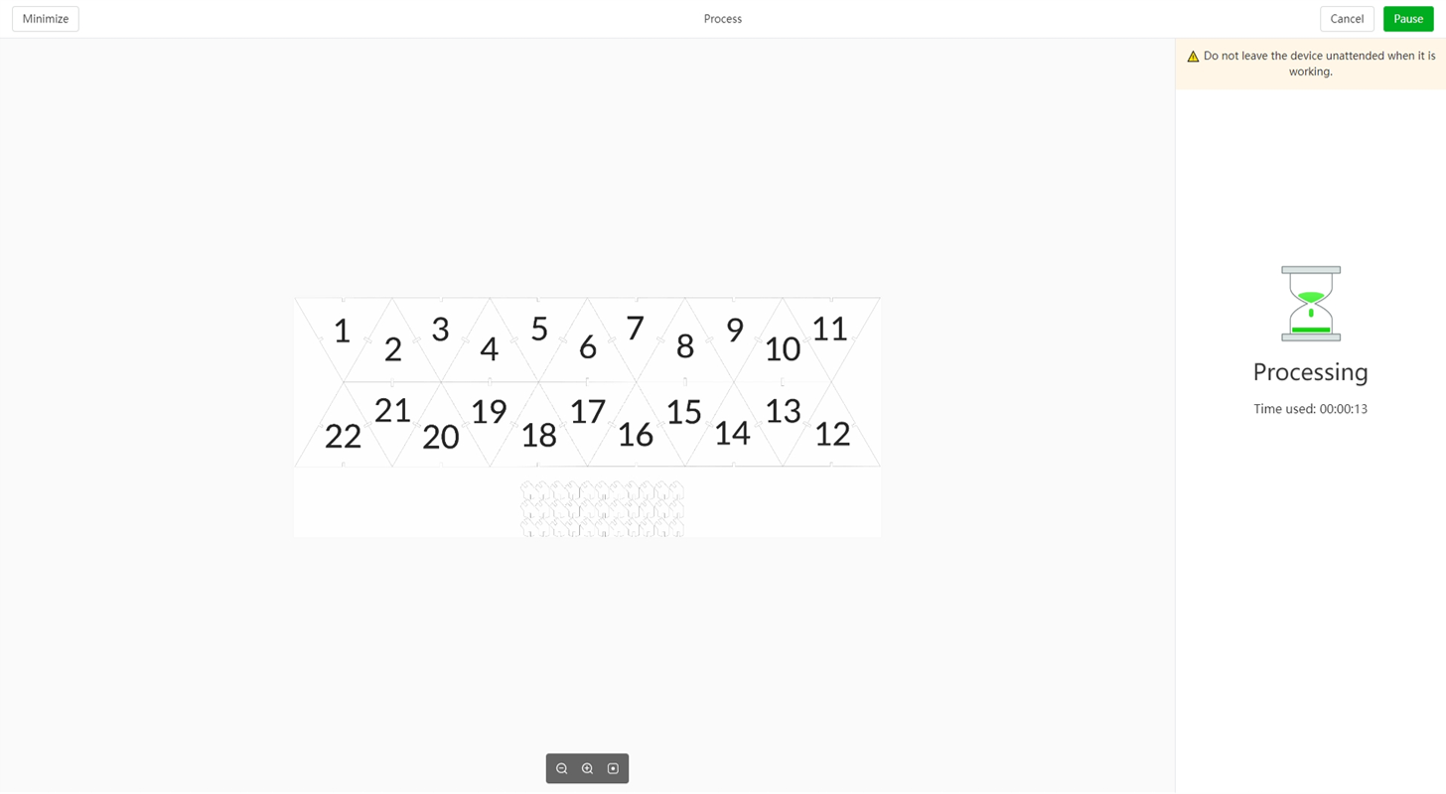
After starting the operation, the interface will display the processing time, making it convenient for users to understand the time spent on the machining.
Step 3 : Assemble the Polyhedral Dice
• Use connectors to join each triangular plate
• Finish piecing to get a polyhedral dice

We will provide the XCS files required to create the polyhedral dice.

More Creative Laser Cutting Projects for the Classroom
Making polyhedral dice is just one example of creative laser-cutting projects. For those interested in learning more about laser cutting, we've compiled several fun and easy creative laser cutting projects suitable for educational settings.
1. Wooden ABC Puzzle
Making a wooden ABC puzzle by students themselves would be a great motivation for alphabet learning. This project not only provides a fun and educational activity but also introduces children to the concept of design and the potential of technology in creating tangible learning tools. With those perfectly-made wooden bricks, kids can recognize the alphabet and improve their hands-on ability in the creation process.
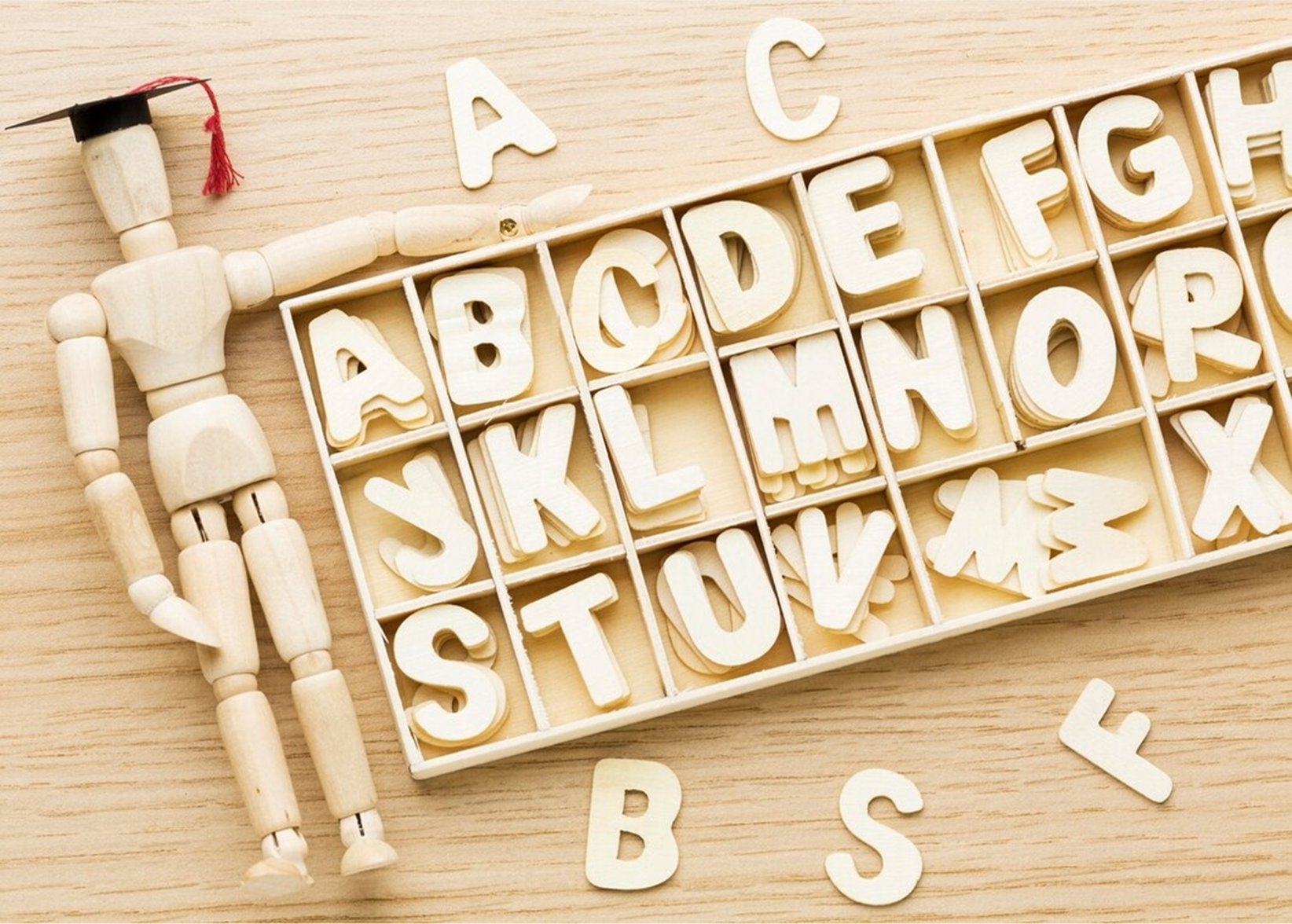
2. The Great Wave Clock
The Great Wave Clock is a creative laser-cutting project that combines art and time-telling to engage students in a unique learning experience. This project involves designing and crafting a wall clock with the iconic image of "The Great Wave" by Hokusai, a famous Japanese woodblock print.
When children complete this project, they will be impressed by their artwork and develop their art appreciation. Combining art with technology, students gain insights into how STEAM can be applied to creative projects.
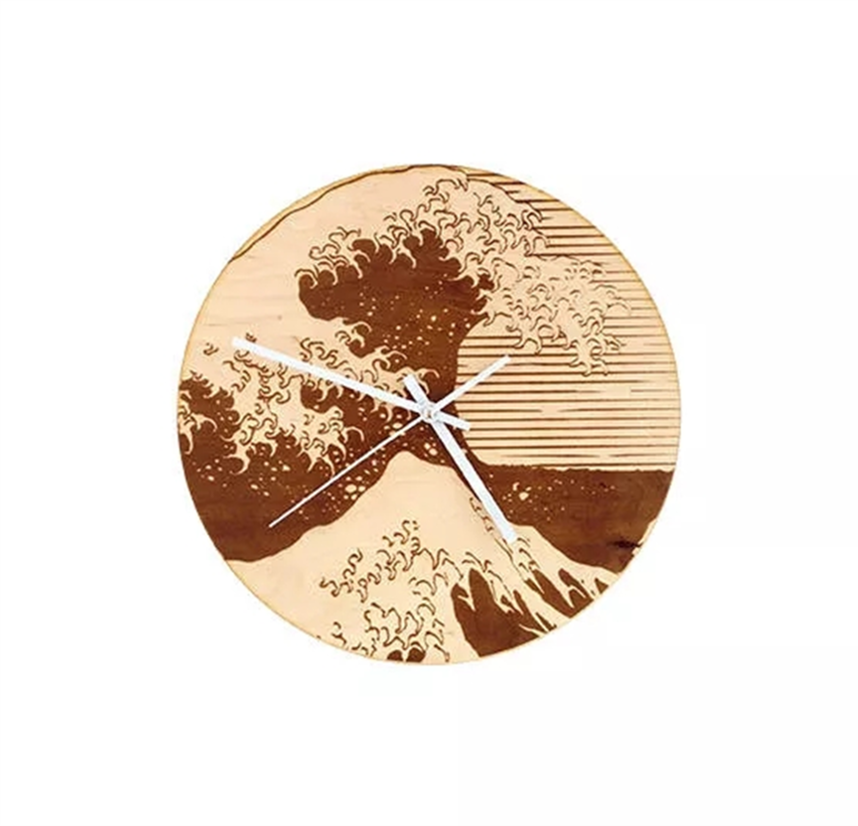
3. Zoo Animals Bookmarks
With cardstock, colored paper, string or ribbon, and a laser engraver machine, students can create their own bookmarks. Creating Zoo Animals Bookmarks is a delightful and educational project that can be carried out in a biology class, which encourages children to read while also sparking their interest in animals and art.
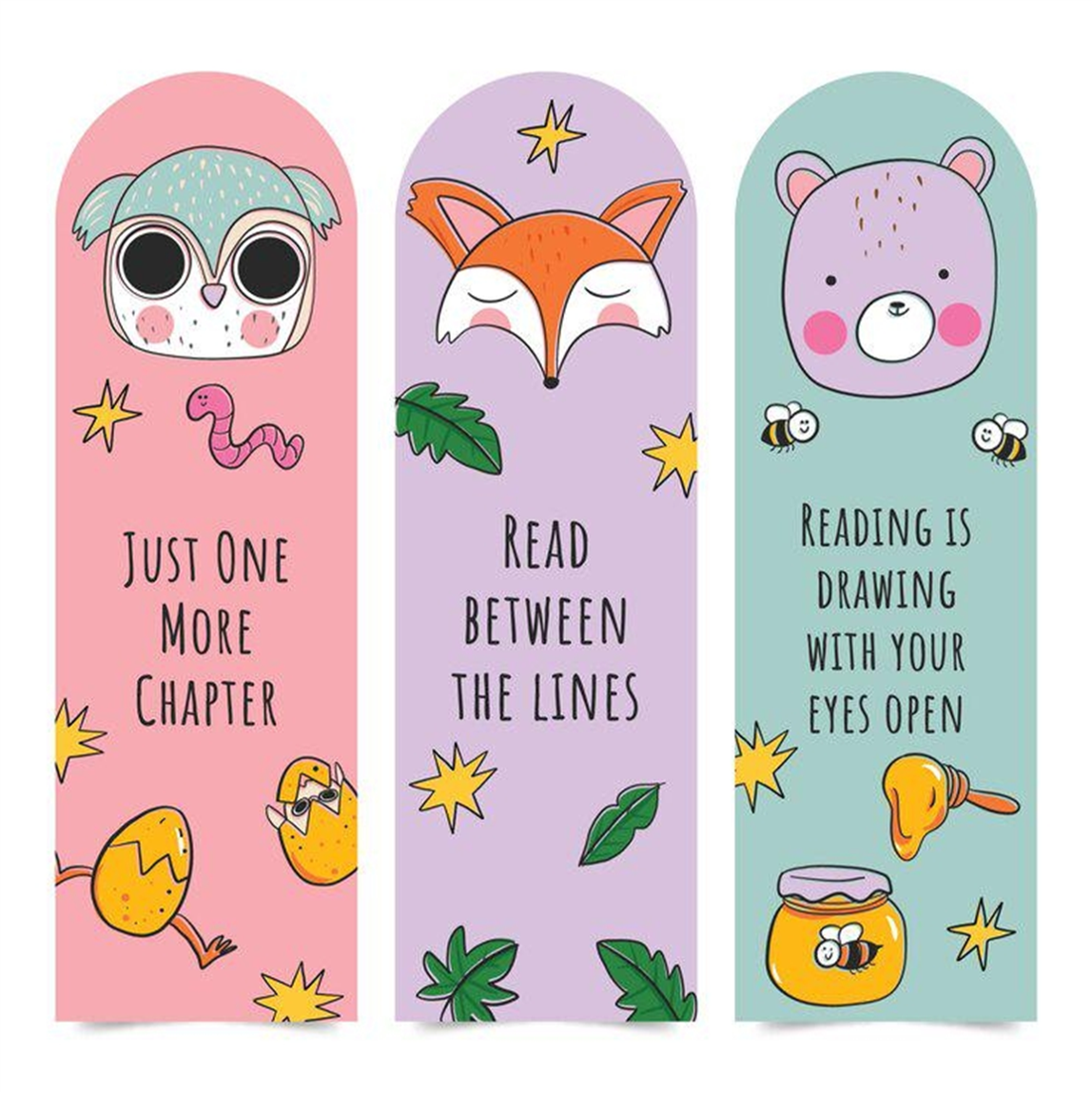
4. Wooden Storage Racks
If you are racking your brains at how to organize a collaborative laser-cutting project, making a wooden storage rack for the class would be a great idea. By creating Wooden Storage Racks, students not only enhance their learning environment but also gain valuable skills that can be applied in various contexts throughout their lives. This project is a testament to the power of combining education with practical, hands-on activities.
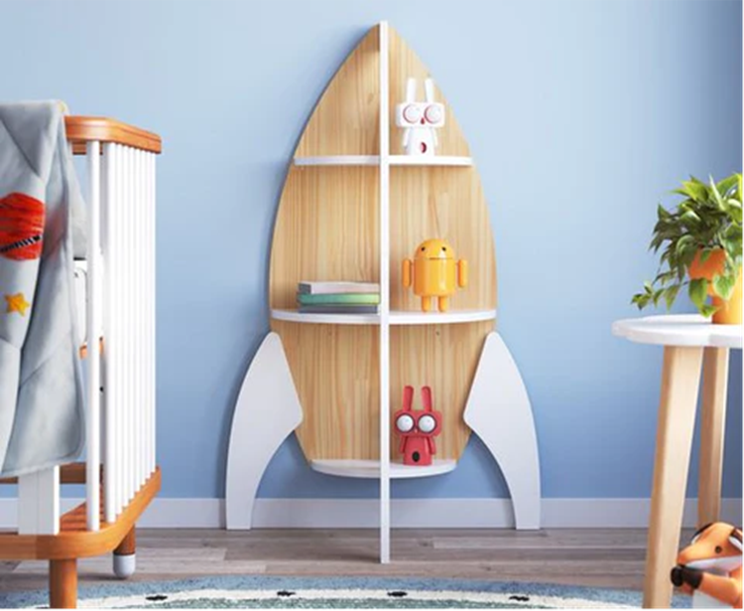
5. Name Tags
Creating Name Tags is a versatile and personalized laser-cutting project. Students can express their individuality through the design of their name tags, fostering creativity. It also helps in creating a sense of community and belonging, as well as aiding in identification during group activities or events.
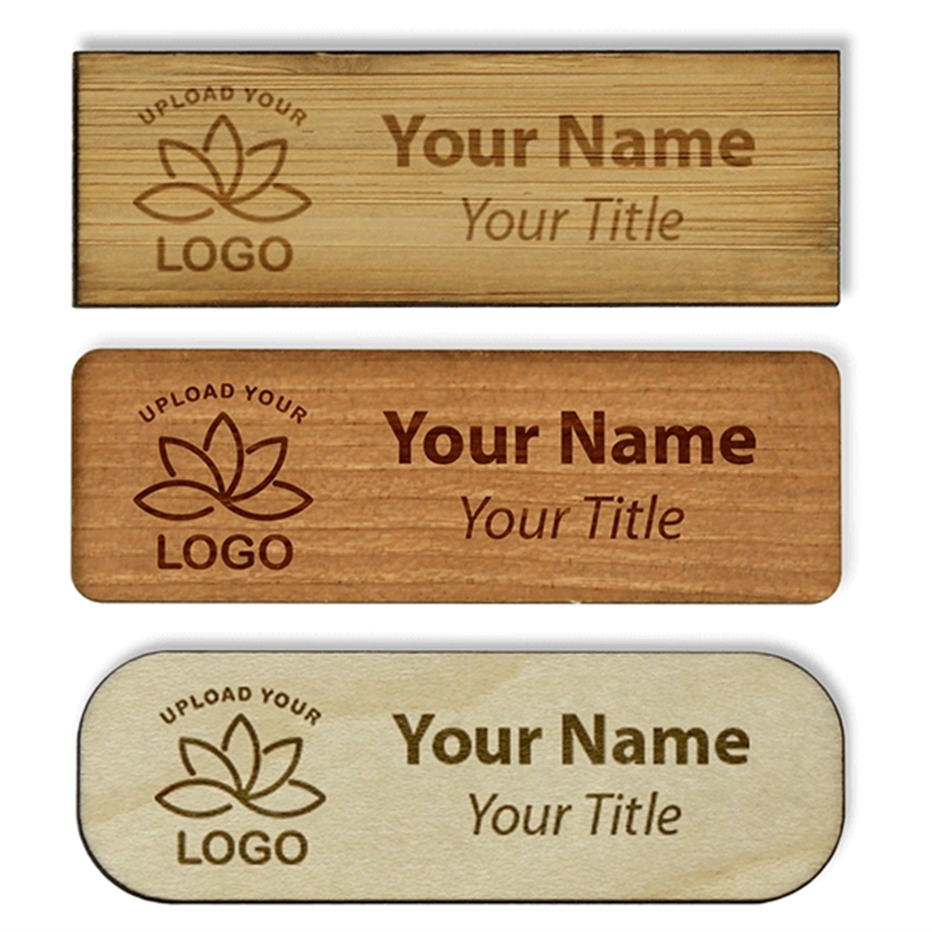
6. Classroom Door Signs
Begin by brainstorming ideas for the door signs, which could include school logos, subject symbols, or inspirational quotes. Then, instruct your students to transfer the design to the laser cutter and carefully cut the shapes and letters from the chosen material. After cutting, students can paint or color the signs to match the school colors or add additional decorative elements. Attach the finished signs to classroom doors using appropriate hardware, ensuring they are securely fastened and visible.
By creating Classroom Door Signs, students not only contribute to their school's aesthetic but also gain valuable skills and insights into the design and production process. This project can be a source of pride and ownership, as students see their work displayed in a prominent place within the school.
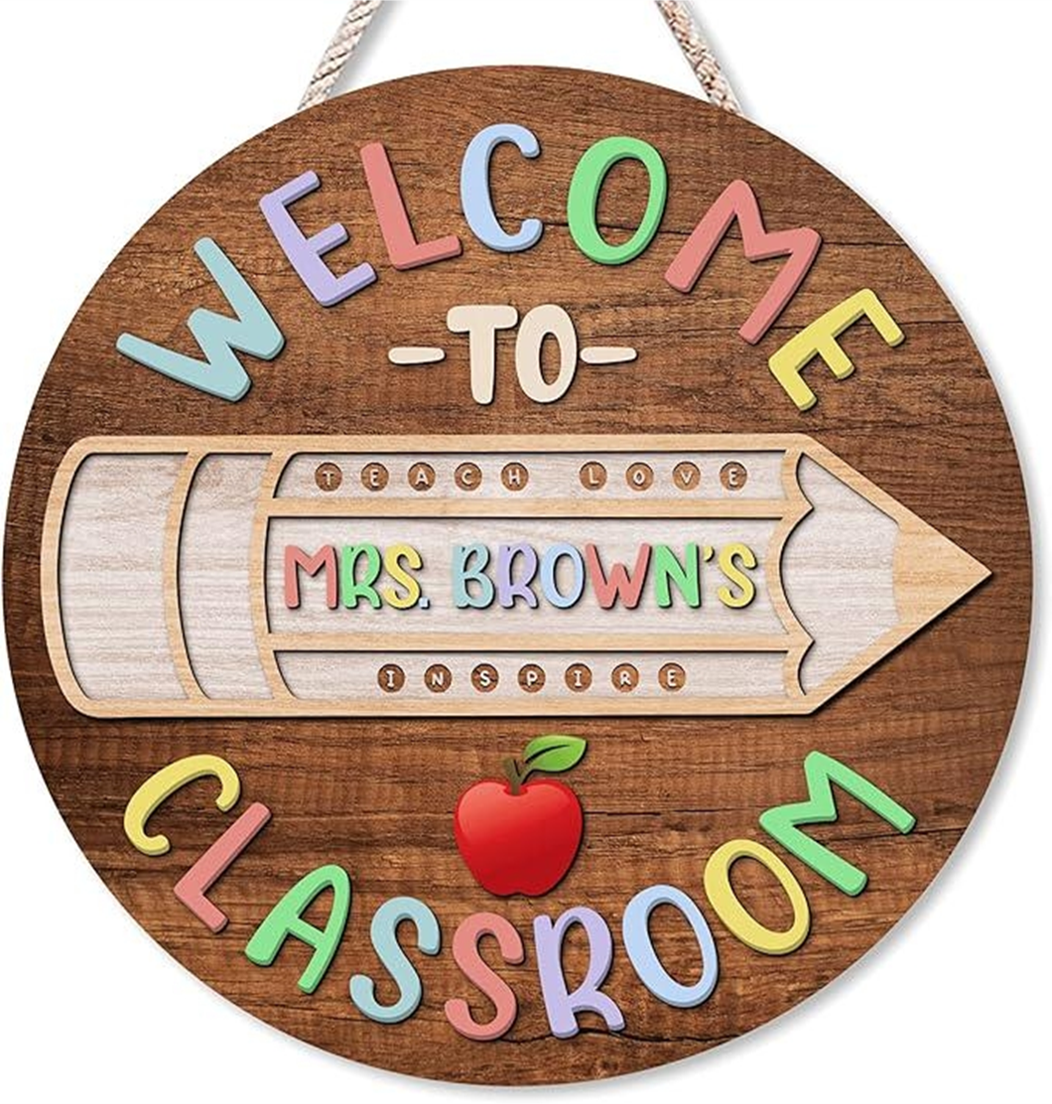
7. Tangrams
Tangrams are a popular educational tool in mathematics, typically purchased from stationery stores. However, dedicating time to making Tangrams with your students can enhance the appeal of your math lessons. This hands-on activity not only provides children with their own set of Tangrams but also offers a more engaging way to understand the fundamental concepts behind these geometric puzzles.
The DIY Tangrams project starts with the careful use of a laser cutter to shape the puzzle pieces from materials like wood or thick paper. This method guarantees precision and ensures a snug fit for each component. Once crafted, the real enjoyment comes from piecing together various figures and patterns, with the only limit being your creative boundaries.
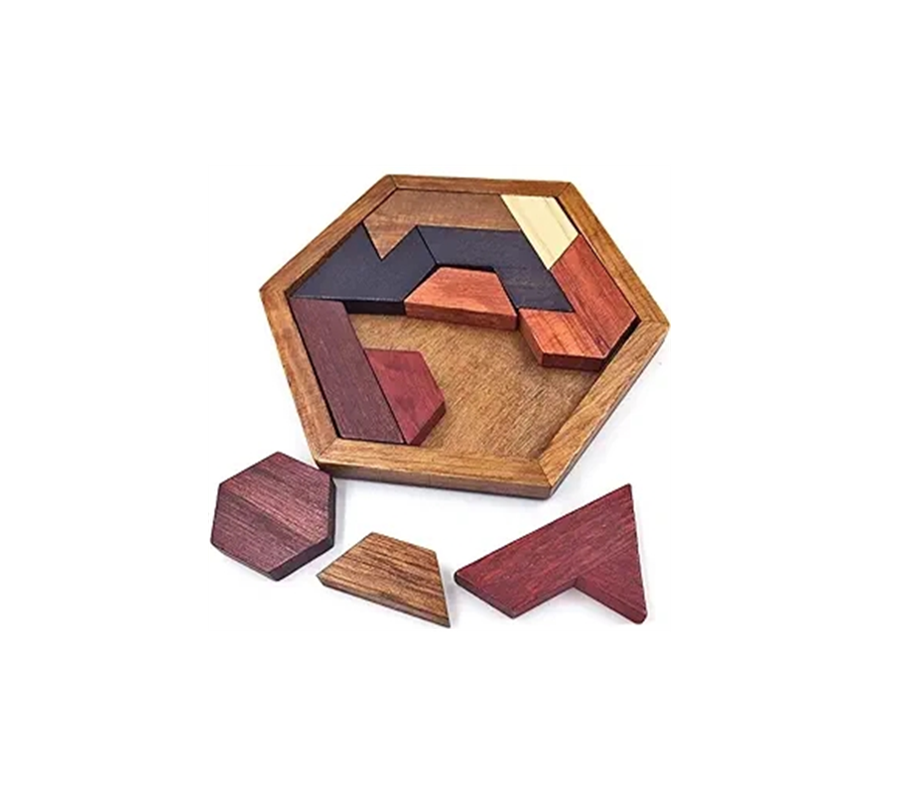
Conclusion
Making polyhedral dice not only provides students with the opportunity to learn about geometry and math, but also incorporates elements of creative thinking and practical hands-on skills.
By making such a polyhedral dice with their own hands, students are able to gain a deeper understanding of its structure and properties, which in turn develops their spatial imagination, hand-eye coordination, and grasp of mathematical concepts.
Hurry up! Make a polyhedral dice of your own!
